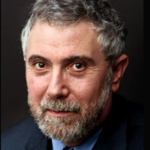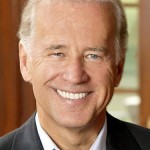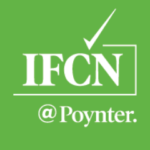A funny thing happened when the International Fact-Checking Network recognized The Weekly Standard Fact Check as a verified signatory of its statement of principles.
Liberals such as economist/columnist Paul Krugman and Media Matters noticed that the IFCN does not stringently enforce its standards for compliance with its statement of principles.
Krugman, from his Dec. 8, 2017 op-ed in The New York Times (bold emphasis added):
Facebook wanted responsible fact-checking organizations to partner with, and several such organizations exist. But all of these organizations are constantly attacked by the right as having a left-wing bias – so it added The Weekly Standard, even though it clearly failed to meet internationally accepted standards for that role.
If the IFCN had made a special exception for The Weekly Standard Fact Check, Krugman would have a valid point. But Krugman does not tell his audience the whole truth. The “internationally accepted standards” include things like posting biographies for an organization’s staffers and averaging at least one fact check per week for the three months before applying to the IFCN for verified status.
In fact, the IFCN has commonly given verified status to organizations that only partially comply with its criteria.
We wrote about it back on May 13, 2017:
Not long after the IFCN started posting links to review assessments on its page of principles, we noticed that organizations could obtain verified status without meeting all of the standards.
As part of that article we published a chart showing which fact-checking organizations received “verified” status despite assessors grading them in some categories as “partially compliant” or even “noncompliant.” The IFCN verified three of 16 organizations despite lack of compliance with at least one requirement.
As for The Weekly Standard Fact Check, the IFCN found it “partially compliant” for eight of 11 criteria. The worst performance for the first 16 organizations given verified status was Libération Désintox, which was noncompliant for two criteria and partially compliant for three others. TWSFC may have one of the worst evaluations among the verified organizations, now numbering 42, but the IFCN has created ample precedent for giving partially compliant organizations “verified” compliance status.
The IFCN’s independent assessor, Assistant Professor Mark Coddington of Washington & Lee University, mainly faulted TWSFC for failing to average one fact check per month for the three previous months at the time of application:
Still, I recommend several changes before the Fact Check is approved. Most broadly, the current version of the Fact Check has existed for only three weeks, and the IFCN calls for three months of consistent fact-checking before it is recognized as a distinct unit. The Fact Check needs to build up a larger sample of work in order to stabilize and be fully assessed in its current form.
Second, the Fact Check and its Explainer page need to be made more accessible. It should be easily found as a part of The Weekly Standard’s website navigation, and its archive page and Explainer page should link to each other. The bio of its writer should be added to his own archive page as well as the staff listing on the site’s About page. And all of the Fact Check’s articles should be listed on its archive page. This is important to public transparency and accessibility, and also to its establishment as a full, distinct unit of The Weekly Standard.
As part of that transparency, I also recommend a more detailed Explainer page with information about what claims it will and won’t check, its political independence policy, and about how to submit claims and suggest corrections. Additionally, I would emphasize continued improvement in the Fact Check’s clear linking of statements to specific points of evidence in its fact-checks.
Krugman, like Media Matters, emphasizes criticism of The Weekly Standard in what rightly counts as a criticism of the IFCN. Krugman’s criticism, like that of Media Matters, doesn’t mention that the IFCN commonly overlooks spotty compliance with its standards.
If the TWSFC fails those standards, the IFCN should decline to give it verified status. And it should treat other fact-checking organizations exactly the same way. Anything else damages the IFCN’s credibility as well as that of the fact-checking organizations it represents.
It will not do for the IFCN to apply its standards in some cases but not others. Even if Paul Krugman makes it look like that is what he is asking.
Afters
Who are the incompetents who approved TWSFC? A majority of the following, assuming the entire board was available for the vote:
- Peter Cunliffe-Jones (Africa Check)
- Angie Drobnic Holan (PolitiFact)
- Baybars Orsek (Dogroluk Payi)
- Govindraj Ethiraj (Factchecker.in)
- Glenn Kessler (Washington Post)
- Laura Zommer (Chequeado)
- Phoebe Arnold (Full Fact)
The IFCN lists the above as its “interim board.” We will remind the IFCN to update its list when the modifier “interim” no longer applies.
Go get ’em, Krugman.




